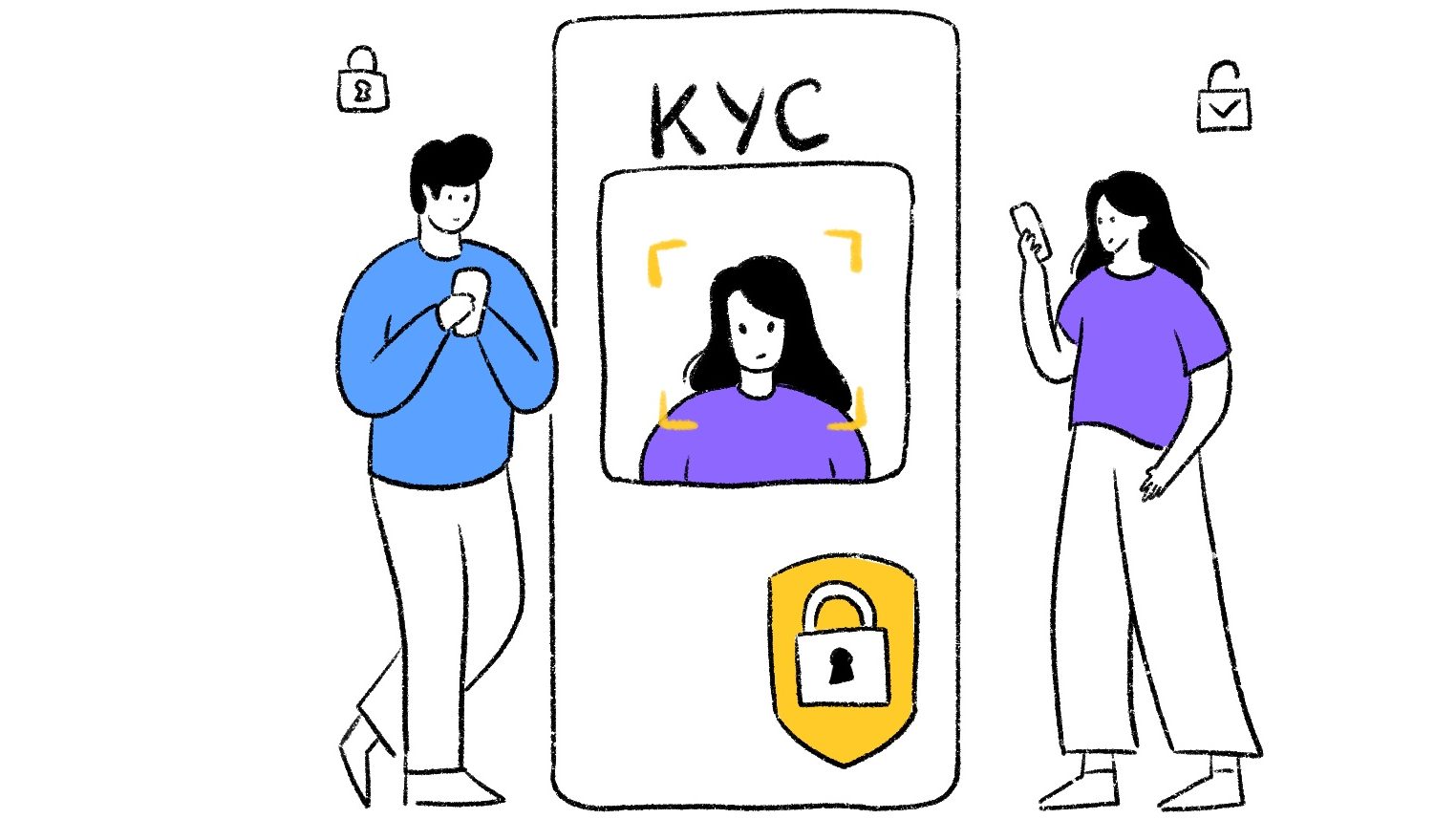What is KYC and KYC verification.


Cryptocurrency, like any digital systems, is as susceptible as anyone else to various risks. For example, hacking. Therefore, every user who cares about their money and security should understand kyc verification what it is and how this verification works.
Understanding kyc verification what it is, it is important to comprehend how this system works for the first Time and with each new entry. Also, everyone who wants to invest in the future should understand kyc procedure what it is. After all, this procedure is incredibly important and useful.
What is KYC verification?

So, kyc what it is: KYC — is the process of verifying the identity of a client who wants to conduct some financial operation, for example, through a bank or another organization. Overall, it is a process related to money. This verification systematically reduces the risks that the client may encounter a fraudster.
In simple words: KYC verification — is a very important verification process, but not ordinary for any sites, but specifically for those platforms that deal with various financial operations. This is an important part of this process, involving the collection and verification of documents that confirm the client's identity. If a couple of years ago this was an unclear and new process, today it is considered standard. Including for crypto exchanges.

KYC verification is necessary to protect both the business itself and its clients from risks related to fraud and illegal operations. This is the security guarantee that everyone is looking for.
What can this process protect against:
-
KYC helps identify people involved in illegal financial transactions. That means this procedure excludes money laundering, which is strictly punishable by the legislation of most developed countries.
-
Financial institutions are required to comply with anti-money laundering laws (AML — Anti-Money Laundering), and KYC is part of this procedure. This is one of the most fundamental functions.
-
By implementing KYC, financial institutions reduce risks associated with potential fines and reputational losses when working with illegal clients.
-
Verification helps create a trustful environment between the financial institution and the client, ensuring the security of both parties.

Although this process seems simple in practice, it has a lot of additional phenomena.
How does KYC verification occur?
The KYC verification process usually consists of several stages. Some platforms may make their adjustments, but they are not significant. Moreover, this procedure is already complex, so it is still not worth complicating it further.
Main stages:
-
Collection of information about the client. This is the first and main thing that ensures security. For this, the client provides basic information such as address, date of birth, and contact details.
-
The second and equally important stage is providing documents. This is required to confirm the user's identity. This can be a passport, driver's license, or international passport. A document confirming the place of residence is also needed.
-
The next step is data verification. After the data and documents are provided, the financial institution or platform conducts their verification. This may include checks against databases of government agencies, using specialized services for identity verification, and anti-fraud systems to detect fraudulent activity.
Also, the risks are assessed during the process. This means that the client is checked: whether they are listed in various “blacklists,” or whether they are notorious debtors. A check for compliance with anti-money laundering procedures is also performed.

Next, the verification process is completed. It is possible if all previous stages went smoothly. Depending on the platform or financial institution, the client may be granted access to a full range of services such as transfers, asset purchases, and other operations.
What is the purpose of KYC verification?
Overall, this process is beneficial for businessmen, investors, and other users. For businesses, it is more than a necessity.
 What does this verification provide:
What does this verification provide:
-
Risk reduction. The organization protects itself from potential fraudulent operations and illegal actions.
-
Compliance with legislation. Conducting business in accordance with KYC requirements reduces the risk of fines and legal consequences.
-
Enhancing reputation. Platforms with transparent KYC policies have a higher level of customer trust.
In addition to business, the benefits of verification also exist for clients. It is about ensuring security. This way, one can gain access to many services. Verified users can enjoy the full range of services offered by the platform. The main advantage of verification is protection against fraud.
Read also
- July gas tariffs have already been set: who will pay significantly more
- Zelensky on drone production, sanctions against Russia and Ukraine's path to NATO: main points from the address
- In Ukraine, a 'purge' of passports is being prepared: which data will disappear from documents
- Ukrainians are frightened by the abnormal heat: Didenko explained what will really happen
- Zelensky met with military officials: Key directions of the front and drone production
- Russia has amassed 50,000 troops in the Sumy region, surpassing Ukrainian forces by three times, - WSJ










